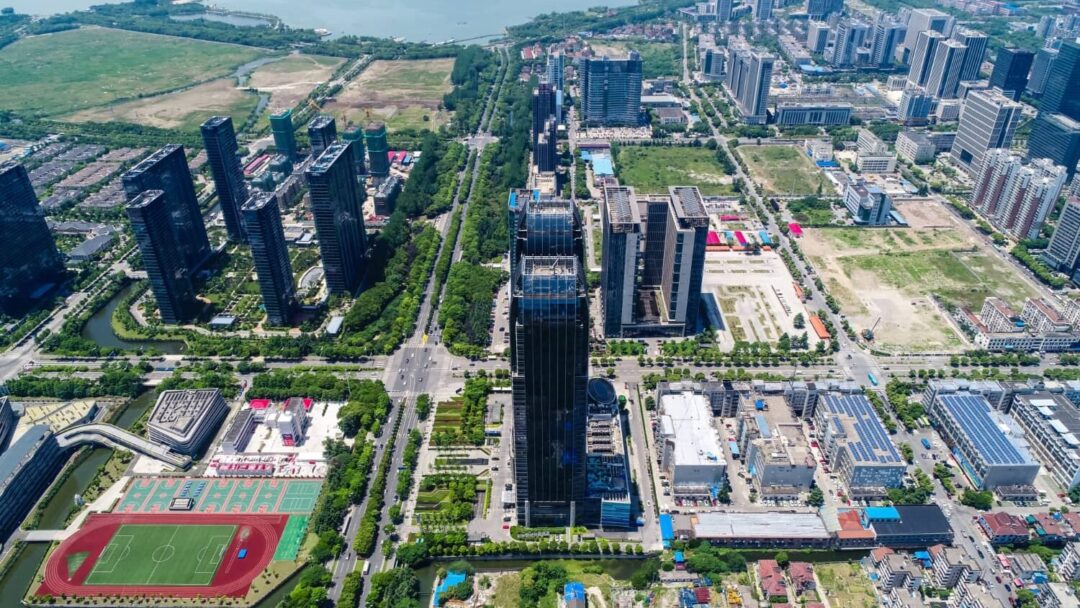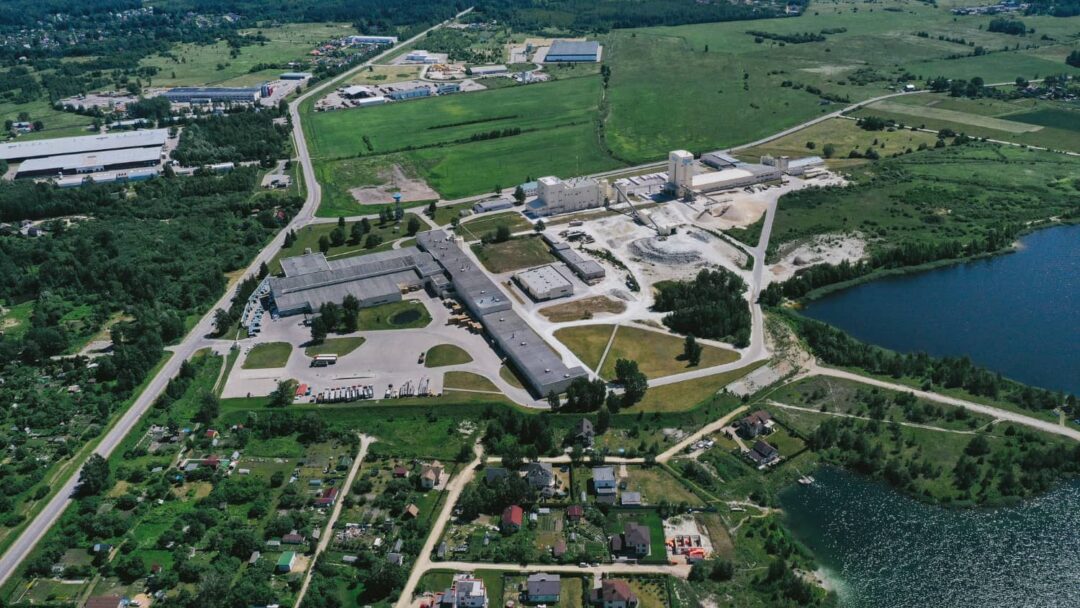In industrial estates development, one crucial factor stands out: location. The strategic placement of an industrial area significantly influences operational efficiency, cost management, and overall business success.
Choosing the right location can differentiate between a thriving business center and a stagnant investment. Let’s explore why location is the most critical element in the success of industrial estates.
1. Proximity to Transportation Infrastructure

Facilitating Efficient Logistics
One of the most significant benefits of a strategic industrial estate location is its access to major transportation networks. Roads, ports, and airports are vital for any industrial operation, ensuring the smooth movement of goods.
Furthermore, the availability of transportation infrastructure can directly impact a company’s bottom line. Efficient logistics operations can lead to substantial cost savings, as businesses can minimize transportation expenses and reduce the need to store large inventories. This advantage also provides a competitive edge over companies located in less accessible areas.
Reducing Transportation Costs and Time
In industries that prioritize just-in-time delivery, such as those dealing with perishable goods or just-in-time production, proximity to transportation infrastructure can be the difference between profit and loss. Shorter transit times ensure that products reach their destinations more quickly, reducing delays and resulting in higher profits.
Additionally, businesses located near transportation hubs can often negotiate better rates with logistics providers. For investors, properties near highways are particularly attractive because they tend to have higher occupancy rates and offer better returns on investment.
Read More: Navigating the Indonesian Company Registration, Essential Steps for New Entrepreneurs
2. Access to Skilled Labor

Attracting and Retaining Talent
Cities, with their dynamic economies and varied populations, draw a wide range of professionals, including young talent and international workers. Access to this skilled workforce is especially beneficial for industries that depend on specialized knowledge and expertise.
Additionally, proximity to urban amenities plays a significant role in employee retention. When employees have convenient access to recreational facilities and dining options, their quality of life improves, which, in turn, can reduce employee turnover.
Specialized Skills and Training Centers
Another significant advantage of industrial estates near city centers is their proximity to educational institutions and vocational training centers. These institutions often serve as a valuable source of skilled labor, providing well-trained individuals who are ready to enter the job market.
3. Integration with Suppliers and Customers

Building a Local Supply Chain Ecosystem
When businesses are located close to their suppliers and partners, they create clusters that foster collaboration, innovation, and efficiency. This clustering effect is not just about convenience; it’s about creating a synergistic environment where companies can thrive together.
Just-in-time production results in lower inventory costs, reduced waste, and more agile production processes that can quickly adapt to changing demand.
Enhanced Customer Access and Market Reach
Proximity to customers is just as important as proximity to suppliers. For many businesses, being close to key markets can be the difference between success and stagnation. When a company is located near its customer base, it can respond to their needs more quickly, provide better service, and build stronger relationships.
Additionally, proximity to customers reduces shipping times and costs. This speed not only improves customer satisfaction but also allows companies to maintain lower shipping costs, which can be passed on to customers in the form of lower prices or reinvested in the business.
4. Regulatory and Economic Incentives

When selecting an industrial estate location, businesses must consider the significant impact that regulations and economic incentives can have on their operations. A favorable regulatory environment, with streamlined permitting processes and reduced bureaucratic hurdles, can save companies valuable time and resources.
Economic incentives, such as tax breaks, grants, and subsidies, offer direct financial benefits that can boost profitability. Additionally, duty-free zones provide strategic advantages for businesses engaged in international trade by significantly reducing import and export costs.
5. Environmental and Community Considerations
Balancing Development with Sustainability
As industrial estate expands, there is an increasing focus on sustainability and environmental responsibility. Businesses must proactively minimize their ecological footprint to comply with regulations and meet the expectations of environmentally conscious consumers and stakeholders.
Strategic site planning that includes green spaces and adheres to stringent environmental standards is essential. Industrial estates featuring parks, green belts, and energy-efficient buildings not only support a healthier environment but also attract businesses that prioritize sustainability.
Community Integration and Corporate Social Responsibility
In addition to focusing on environmental sustainability, community integration is equally important. A successful industrial park is one that coexists harmoniously with its local community, contributing positively to the social and economic fabric of the area. This is where Corporate Social Responsibility (CSR) initiatives come into play.
Engaging in CSR initiatives helps industrial parks build goodwill and foster strong relationships with local residents, governments, and organizations. By actively participating in the community, businesses not only enhance their public image but also create a sense of shared purpose and mutual benefit.
Read More: The Role of Patimban Port in Transforming Indonesia’s Logistics Business Landscape
Strategic Location: The Key to Industrial Estate Success

Selecting the right location for an industrial estate is a complex decision that influences every aspect of business operations, from logistics and labor to customer access and regulatory compliance. The benefits of a well-chosen, strategic location are undeniable, equipping businesses with the essential tools to thrive in the competitive market.
For companies seeking to capitalize on these advantages, Subang Smartpolitan in Karawang, West Java, offers an ideal solution. With its prime location, advanced infrastructure, and comprehensive services, Subang Smartpolitan provides an environment conducive to business growth and success. Visit Subang Smartpolitan’s website to learn more about their offerings and how they can support your business ambitions.


